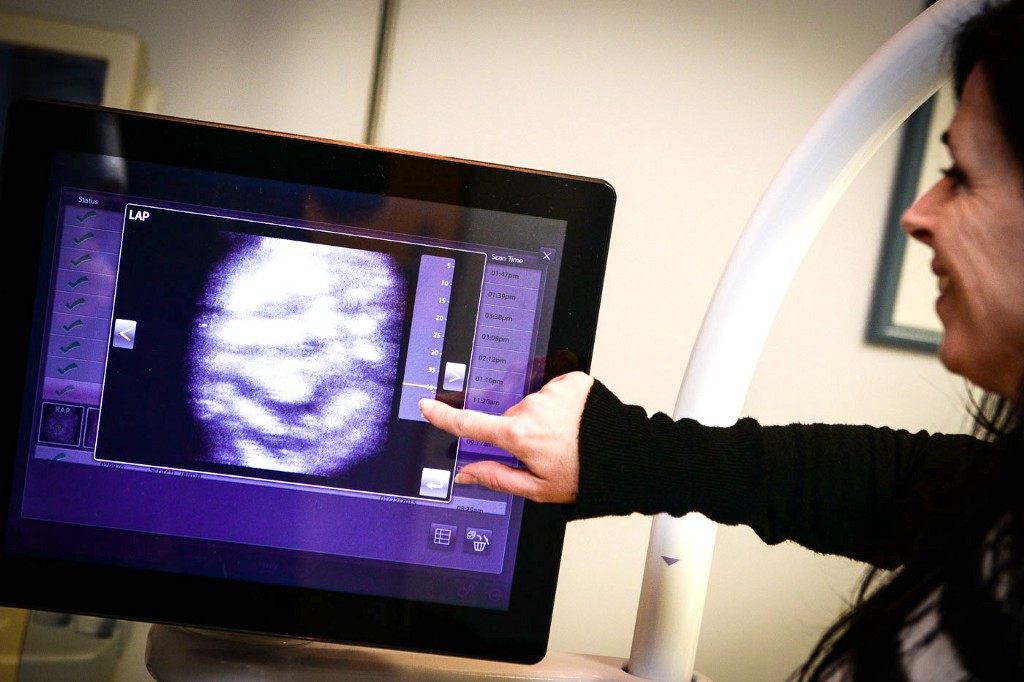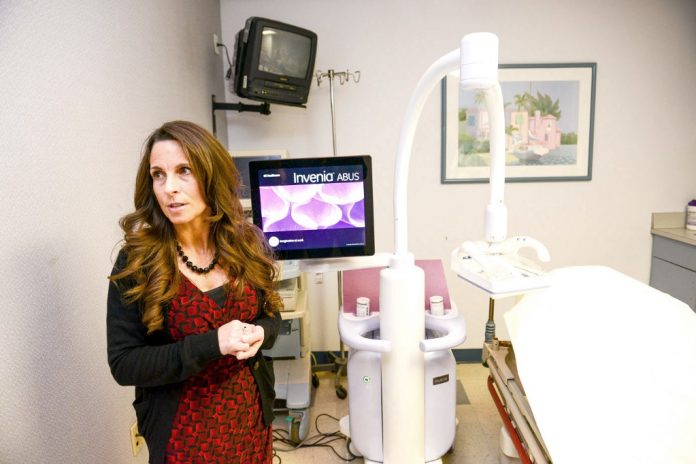Medical matters: Dr. Sonja Cerra-Gilch, chief of Breast Imaging and Intervention, explains how Aria Health’s new ultrasound system that helps doctors identify cancers within dense breast tissue.
Aria Health’s Torresdale campus this week will be introducing an ultrasound system that will better help doctors identify cancers in within dense breast tissue.
Used in conjunction with a mammogram, the Invenia Automated Breast Ultrasound System, or ABUS, has the potential to find 35.7 percent more cancers that wouldn’t have been detected with just a mammogram, said Dr. Sonja Cerra-Gilch, chief of Breast Imaging and Intervention at Aria.
It’s a matter of better seeing tissue, the doctor said last week as she explained the new equipment.
“This technology will significantly improve our ability to diagnose patients with dense breast tissue,” she said.
Women who have dense breast tissue are four to six times more at risk for breast cancer. The dense tissue also makes it more difficult to detect cancers through mammography.
Pennsylvania has passed a law that requires women to be notified who might need additional imaging if their breasts are dense.
The GE Healthcare ABUS gives doctors that additional perspective, Cerra-Gilch said. Ultrasound uses technology similar to sonar.
Many people might recognize “ultrasound” that is used in prenatal exams of developing fetuses, but ABUS does not utilize a hand held “transducer” so its images give doctors a wide view of a breast.
According to information provided by Aria Health, “Sound waves are sent into the body … The ‘echoes’ that bounce back are then displayed as an image in real time on the ultrasound monitor.”
Pointing to computer monitors in her office, Cerra-Gilch said ABUS gives doctors multiple views, or “slices” of a breast from its front, through various cross-sections all the way to the chest wall. Doctors using ABUS can find cancers that mammograms or more conventional ultrasounds might miss, according to information provided by the hospital.
The doctor stressed that ABUS should be used with mammograms, not in place of them. The equipment, she said, doesn’t use radiation and it is not as uncomfortable as a mammogram.
It feels “like holding an infant to your chest,” she said.
Cerra-Gilch said about six patients will be examined with the ABUS this week. Right now, the hospital is trying to let doctors and the public know about its availability.
The doctor said insurance covers ABUS images.
For more information, call 215–831–5800 or 1–877–800–2742, or visit www.Ariahealth.org/ABUS. ••

Medical matters: Mary McDonnell explains how Aria Health’s new ultrasound system that helps doctors identify cancers within dense breast tissue. MARIA POUCHNIKOVA / TIMES PHOTOS





